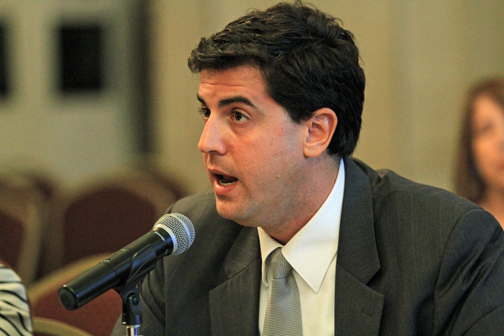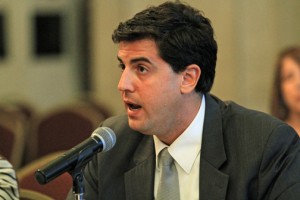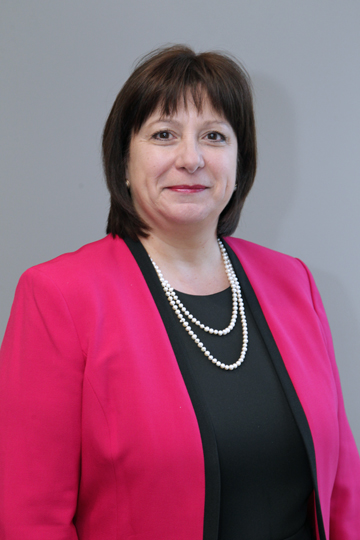Marazzi to stay at Statistics Institute; La Fortaleza balks

The Board of Directors of the Puerto Rico Institute of Statistics announced Monday the appointment of Mario Marazzi-Santiago as executive director for a second 10-year term.
Although his designation received Gov. Ricardo Rosselló’s support last week, on Monday, Ramón Rosario-Cortés, the administration’s public affairs and public policy secretary, said the decision was made by a Board that had been partially dismissed.
Marazzi-Santiago is Institute’s first employee and first executive director. His appointment was effective Aug. 1, 2007 and expires July 31, 2017. In late May, the Board issued a public call to identify his successor.
During the process, several requests were received from qualified candidates, including candidates living outside Puerto Rico. Subsequently, the Board had the opportunity to analyze and discuss the qualities of the various candidates, which withdrew their nominations.
Marazzi-Santiago’s performance at the agency also underwent a thorough performance assessment over the past 10 years. His performance at the head of the Institute was evaluated using a system that included a variety of criteria such as the sound administration of the Institute, the Institute’s finances and reputation, among others.
The Board held an extraordinary meeting on Sunday, and agreed by majority to re-appoint Marazzi-Santiago.
“In recent months, I have received countless expressions of support from all kinds of people, even people who have nothing to do with the Institute. I express my deep appreciation for the outpouring of support received,” Marazzi-Santiago said.
“Today, again, I received another extraordinary show of support from the people with whom I have been working on the Board in recent years. I greatly appreciate the confidence placed in me to continue to lead this important institution for the next 10 years,” he said.
Over the past 10 years, the Institute has been audited three times by the Office of the Comptroller, receiving favorable reviews and no warnings. While no administration has complied with the $5 million budget allocation for the Institute, the agency has shown good fiscal discipline. Now, it is conducting the “Household Income and Expenditure Survey,” which is essential for improving the quality of Puerto Rico’s economic statistics.
“As an economist, I share the frustration of many people that Puerto Rico’s economic statistics are not yet on par with the best federal and international practices,” said Economist and Institute Board Chair Antonio Fernós-Sagebie
“That’s why the Board had initiated a process of serious and extensive recruitment to identify the Institute’s next executive director. I’m sure that under Marazzi-Santiago’s leadership, he will be able to provide administrative continuity to the great efforts already being made to implement the necessary methodological improvements to these effects,” said Fernós-Sagebien.
Controversy swirls
However, the prominent economist and professor was one of several board members who Rosselló dismissed last week, when he publicly asked Marazzi to stay at the helm of the agency.
The changes responded to La Fortaleza’s decision to restructure the Institute so that aside from being a data collections entity, it becomes a vehicle to help transform and oversee information processes, Rosario said in a statement released July 21.
The members who were removed were notified last week, he said. Two other members — Alex López-Echegaray and CPA Bethsié Rosa-Reyes — were re-nominated, while Arnaldo Cruz-Sanabria, founder of Abre Puerto Rico, a nonprofit organization that lobbies for access to public information, also kept his seat.
The announced destitutions were coupled with the nomination of two new board members: Puerto Rico Planning Board Chair María Gordillo and Attorney Jeannelle Alemar-Escabí.
“The rushed appointment that lacked proper precautions of an executive director was held by convening a Board of Directors that was dismissed and without the new regular members appointed by the governor,” Rosario-Cortés said.
Determining the direction over a 10-year period of a government agency as important as the Institute “is not something to be done by telephone and without conducting any other interviews, and with people making decisions outside of Puerto Rico,” the government official said.
“This ‘ultra vires’ decision was taken by calling a nonexistent board with 24 hours to take such a momentous decision, such as the one they attempted,” Rosario-Cortés said.
“It is unfortunate that the dismissed members undertook this action outside the legal framework and created a situation that in no way contributes to the Institute, he said, adding the new Rosselló-appointed Board will be meeting in the coming days to run the institution within the legal framework and formally elect an executive director.










